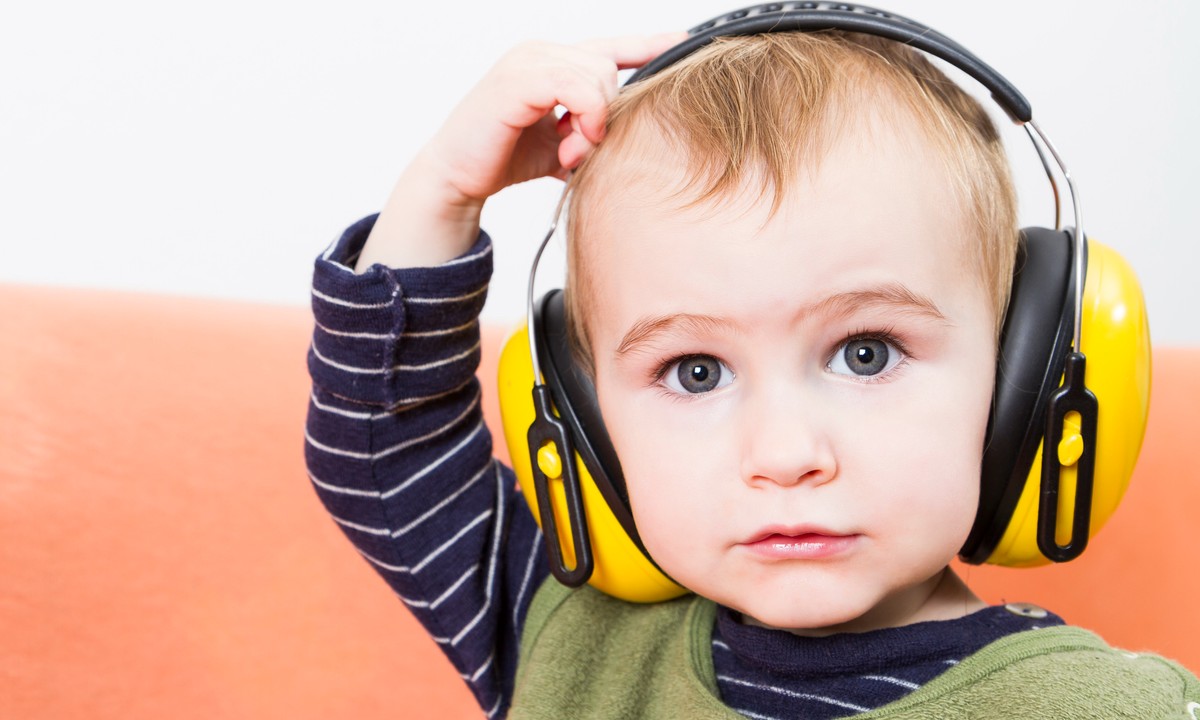Take Your Baby to Fun Events While Protecting Their Hearing

Hearing is essential to a baby’s development. It helps them learn to speak, and it also allows them to bond with their caregivers — there’s nothing like that first conversation with your little one after they learn how to use their words.
Because infants are still developing and have different anatomy than adults, though, they’re susceptible to noise damage, which can have a huge negative impact on how they grow. If you’re looking to take your child to their first concert or sporting event, here are a few things to keep in mind when it comes to protecting your child’s hearing before you go out.
ABOUT OUR BABIES’ EARS
Researchers have known for some time that babies are born with functioning hearing and that sensitivity to sound improves dramatically during infancy. Improvements continue up to the age of 10 when the average child’s hearing is comparable to an adult’s.
On average, babies are better at detecting noises than tones. While adults are better at hearing noises, processing their whereabouts, and selectively focusing on what sounds most important, babies listen to the world differently. Their brains process noises simultaneously, which is why they might respond to different noises than the ones we respond to. So, if you’re trying to get your little one to pay more attention to you, it may be a good idea to cut out any background noise.
Now that we know a little more about how babies’ hearing works, let’s focus on how to protect them. The good news is that there are many ways to protect your baby’s ears. For starters, you can limit their exposure to loud noises, and you can also make sure that they wear infant ear protection. You can also help protect your child’s hearing by teaching them about safe listening habits as they get older, but until then, you’re going to have to do it for them.
THE THREE Ds OF HEARING
Decibel
A decibel (dB) is a unit of measurement used to quantify the intensity of sound. The decibel scale is logarithmic, meaning that an increase of 10 dB represents a tenfold increase in sound intensity. In other words, a sound that is 20 dB louder than some other sound is actually 100 times louder!
A decibel is a way to determine a sound’s loudness, but how do decibels damage hearing? When the ear is exposed to loud sounds, the tiny hair cells in the cochlea can become damaged. This damage can occur from a single exposure to very loud noise or from repeated exposure to moderate-level noise. The process of loud sound-induced hearing loss is not fully understood, but it’s thought that the damage is caused by an excessive amount of sound energy being absorbed by the hair cells. This excess sound energy causes the hair cells to vibrate too much, which will eventually lead to their death. Loud sounds pose a greater risk for babies than adults due to their thinner skulls, but a helpful rule to follow is that if you can talk over the sound then it’s not too loud.
Distance
Another important factor to consider when taking your baby to an event is how close the noise is. The further the sound is from your child, the less likely it will cause damage, and be sure to keep this in mind with music or noise-making toys at home too. Infants like to grab things and bring them close to their faces, but ensuring that they can’t reach music players, audio speakers, or radios can help keep them safe.
Dose
How long your baby listens to noise matters just as much as how loud or how close it is. Sounds that aren’t considered harmful at ten minutes can become harmful if listened to for hours, and the same is true for adults. It’s recommended to be careful when using baby sound machines and white noise makers, and always check that they’re not being played too loud, too long, and too close to your child. If you’re at a busy live event, always be sure to take breaks for yourself and your baby.
CONCLUSION
There are many ways to protect your baby’s hearing, and by doing so, you’re giving them the best chance to develop and grow. Just keep the 3 Ds to hearing in mind and bring infant hearing protection with you whenever you and your little one go out to a fun event with live music or loud activities.